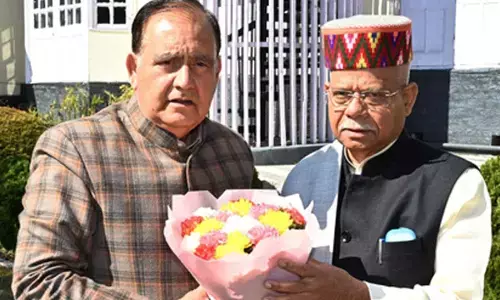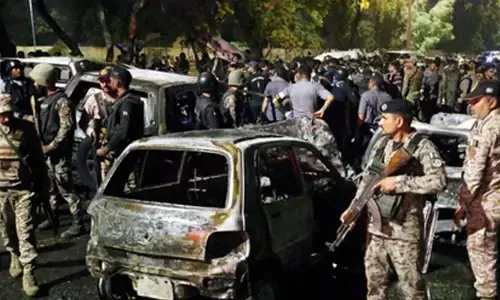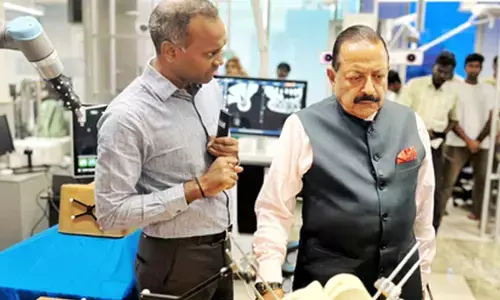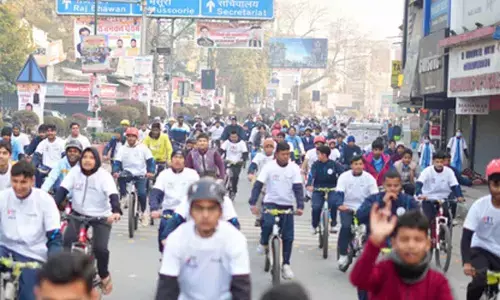On this auspicious Ugadi, let's take a pledge to save soil
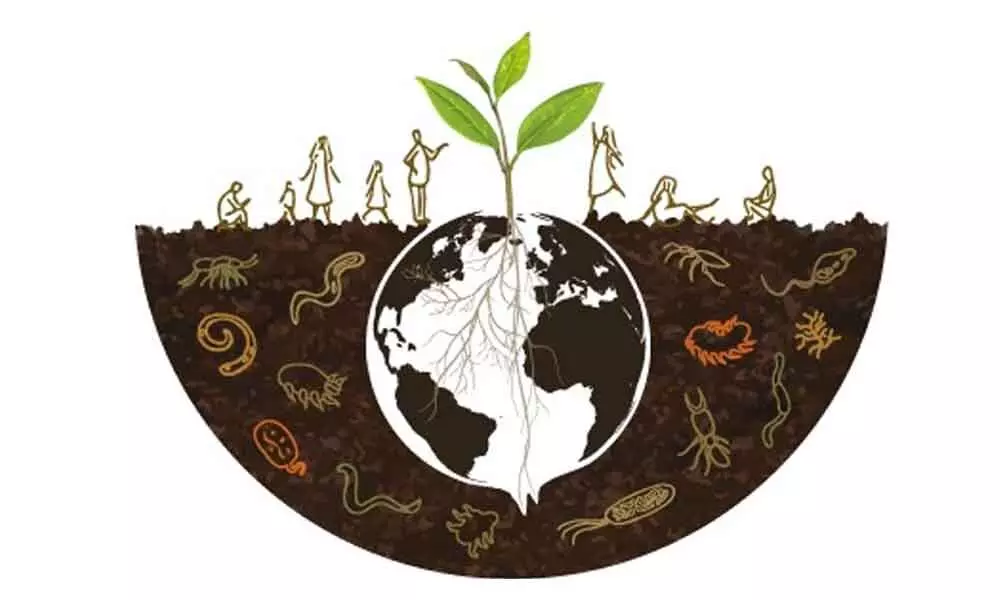
Ensuring that our soil is rich and fertile is key to avoiding an ecological disaster. So why do we need to save the soil: Eighty-seven per cent of life forms on this planet – microbes, worms, insects, birds, animals, human beings, plants, trees and every other vegetation on the planet are sustained by an average of thirty-nine inches of topsoil. And that is in grave danger right now
Why This Movement:
Sadhguru has set off on a 30,000 km (18,600-mile) trip through Europe and the Middle East to "save soil", meeting celebrities, environmentalists and influencers in dozens of countries.
The journey is part of his Save Soil campaign, calling on policymakers to make soil regeneration a priority. The UN has said a third of soil globally is degraded and more than 90 per cent could become contaminated by 2050. It can take 1,000 years to produce a few centimetres of soil, according to the UN's campaign against desertification.
So far, 14 countries, including Barbados, Guyana and Dominica, have signed a memorandum of understanding to work collaboratively to secure soil health globally. Sadhguru hopes that more of the UN's 193 member states will come on board as he bikes through Europe.
But policy change cannot be too prescriptive, according to Sadhguru, so the Save Soil movement – backed by global agencies such as the UN Convention to Combat Desertification and World Food Programme – enables farmers to decide themselves how best to bring back more organic content into the soil.
Why do we need to save the soil
Ensuring that our soil is rich and fertile is key to avoiding an ecological disaster. So why do we need to save the soil: Eighty-seven per cent of life forms on this planet – microbes, worms, insects, birds, animals, human beings, plants, trees and every other vegetation on the planet are sustained by an average of thirty-nine inches of topsoil. And that is in grave danger right now.
In the last forty years, forty per cent of the world's topsoil has been lost. The United Nations says we have soil left only for approximately eighty to a hundred harvests, which means another forty-five to sixty years of agriculture. After that, we will not have the soil to produce food. So, you can imagine the suffering that we will unfold in the world.
Thirty per cent of India's land is already degraded, and 90 per cent of India's states are seeing soil turn to desert. That means nothing can be cultivated there. So, protecting the soil for the future generations of this land is the most important thing.
How can soil revitalisation help the environment?
I was speaking at one of the UN agencies in Germany, and they asked me, "What are the three things we need to do to prevent an ecological disaster?" I said, "The three things are, 'Soil, Soil, and Soil.'" This is something that is not being looked at because it is fashionable in the cities to talk about air pollution. I am not saying it is not a concern, but if you take the necessary actions to fix the soil, that action will also take care of the water. Air pollution can be fixed in a short time if we are willing to sacrifice our economic exuberance a little. But if you want to fix the soil you have destroyed, it will take 15-25 years if you go at it aggressively. If you do it without much interest, it will take 40-50 years before you can get the soil to a certain level.
If the soil is in bad condition for that long, two to three generations will go through terrible states of life.
Organic content builds healthy soil
People have been tilling the same land for thousands of generations in India. But in the last generation, the soil quality has become so poor that it is becoming a desert. If you want to preserve the soil, organic content has to go into it. But our trees have all been cut, and millions of animals are being exported from the country. These are not animals; this is our topsoil going to some other country. When this happens, how will you replenish the soil?
If there are no leaves or animal waste, you cannot put back anything. This is simple wisdom that every farming family knew. They knew how many animals and trees you must-have on a certain amount of land.
There is a national aspiration in India which the old Planning Commission has already set that thirty-three per cent of India should be under the shade because if you want to preserve the soil, that is the only way. And I am trying to push for a law that if you own one hectare of land, you must compulsorily have a minimum of five bovine animals on the land. There is one fantastic thing about this land for which we have scientific data but no scientific reasoning yet. If you go to a place in this country where the soil is good and take one cubic meter of this soil, it is said that there are approximately 10,000 species of life in that one cubic meter.
This is the highest concentration of life found anywhere on this planet. We do not know why. So, this soil just needs a little support. If you give it that little support, it will bounce back quickly. But as a generation of people, do we have the necessary brains to provide that little support or will we sit around and watch it die?
You cannot keep soil rich with fertilizer and a tractor. You need animals on the land. Right from ancient times, when we grew crops, we only took the crop, and the rest of the plant and animal waste always went back into the soil. Unfortunately, we seem to have lost that wisdom.



